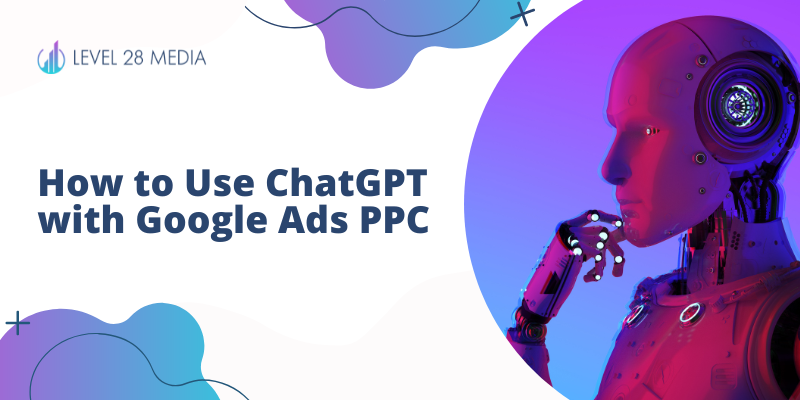Why Your Google Ads Are Not Generating Leads
You spent time, money, and a ton of effort on your Google Ads PPC campaign, but it’s not generating the number of leads you thought it would. Are you thinking about turning everything off? Hold on – not so fast! There could be a few factors at play as to why your campaign isn’t performing. Before you turn off your campaign and give up on PPC completely, let’s look at common reasons for poor ad performance: 1. Your Budget is Restricted Budget is one of the most common reasons for poor performance. Many want to spend as little as possible on their ads for maximum return. However, a restrictive budget can hurt you in the long run. Think of it like driving a car with one foot on the gas and one foot on the brake every few seconds. You may be moving, but progressing VERY slowly. Bid prices on keywords can vary depending on the competition, so if your budget is too low or restricted, your ads will not get the visibility and impression share they should to get results. Your ads might be perfectly designed, but spending more budget may be the easy fix to solve your issue. One metric you can look at to measure if you need to spend more is Search lost IS (budget). This is the percentage of time your ad didn’t appear to searchers due to budget constraints. If it says 80%, then 80% of searches match your keywords, but your ad did not appear. Having a flexible budget and considering your cost per conversion is recommended. 2. Your Ad Quality Score Let’s say you have a sizable budget and are spending a few thousand per month. However, your Google Ads are still not generating leads. Consider checking your Ad Quality score! Ad Quality Score measures your ad’s search relevance and user experience when looking at your ads. When calculating your ad quality, Google will take your ad copy, landing page experience, and potential click-through rate. What’s the consequence of a lower ad quality score? Higher cost per click Low visibility Fewer clicks and conversions To improve your ad quality score, make sure you are writing persuasive ad copy, targeting relevant keywords, and following landing page best practices. 3. Conversion Tracking is Not Set Up Correctly Many people forget to double-check their conversion tracking. Your ads might perform great, but your ad tracking is probably telling a different story. Conversion tracking helps you accurately measure the effectiveness of your Google ads campaign. It can track user actions on your landing page or website. This could mean tracking calls or form submissions made through your ad. If your tracking is not set up correctly, your ads might have received more conversions than you thought! It’s also possible your conversion numbers are over-inflated. Seeing tons of conversions and no legitimate leads can also indicate inaccurate conversion tracking or that you may be targeting the wrong keywords. Make sure you are not counting form or page views as conversions or clicks. This common error often results in inflated conversion numbers and fewer genuine leads! 4. Poor Keyword Research and Planning The culprit of why your Google ads are not generating leads may be selecting the wrong keywords. The campaign research and planning process is a key factor to your success. You need to keep your customer persona in mind. What terms are they using to find the services or businesses they need? With search ads, you want to focus on targeting “high-intent” keywords. “High-Intent” keywords are keywords your audience uses when they are ready to purchase or convert. For example, this could be keywords like “bankruptcy lawyer near me” – this indicates they are actively searching for a bankruptcy lawyer in their area. If they are searching for “bankruptcy laws” this likely means they are still in their research phase and not quite ready to speak with a lawyer. You also want to ensure that your targeted keywords have enough monthly search volume. Keywords with no searches will result in no leads and poor performance. The appropriate search volume will vary, but it’s suggested that you should consider keywords with at least 50 monthly searches. 5. Your Landing Pages Are Not Following Best Practices As mentioned previously, the landing page experience factors into your ad Quality Score. It’s a component of your Google Ads campaign that helps searchers take the next step to become a lead. Your landing page should speak to the target customer’s pain points in a persuasive manner. Your landing page also needs to follow some best practices. What does this mean? Targeted keywords need to be included on your landing page to increase relevance. The landing page is responsive to multiple devices and is mobile-friendly. Includes call-to-actions. Some examples include Call Now or Request a Consultation The page loads quickly for a better user experience Including social proof and testimonials Remember, the user journey does not stop after clicking an ad. Focus on persuading the user to take the next step and convert to a lead! 6. You Aren’t Giving Your Google Ads Campaigns Enough Time Too many people think Google Ads PPC results will come overnight. That is not the case! Google reviews most ads within one business day, and it takes another seven days for Google to gather data about your business and examine your target audience, which is a standard learning period. Sometimes it can be more or less depending on your bid strategy. It’s also important to note that Google Ads reporting is not real-time, so don’t expect the most accurate data 24-48 hours after the campaign launches. To properly measure performance, a Google Ads campaign should run for at least two to three months. Why? New campaigns need enough time to gather enough data to make further optimization decisions. Your Quality Score can also improve over time which results in better performance! Time + Data + Patience = A Successful PPC Campaign 7. Your Business Might



